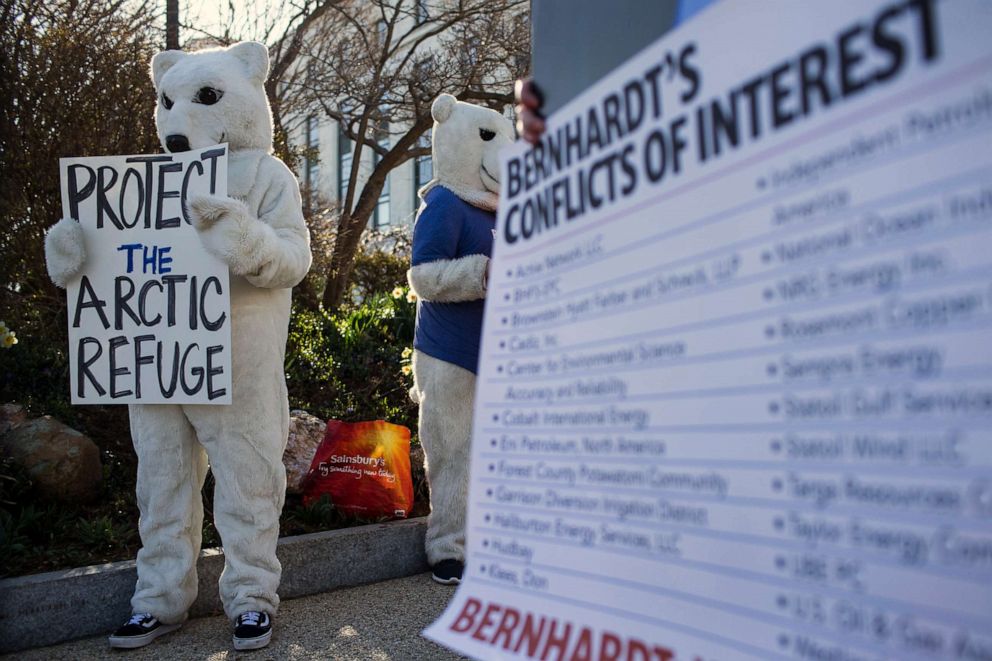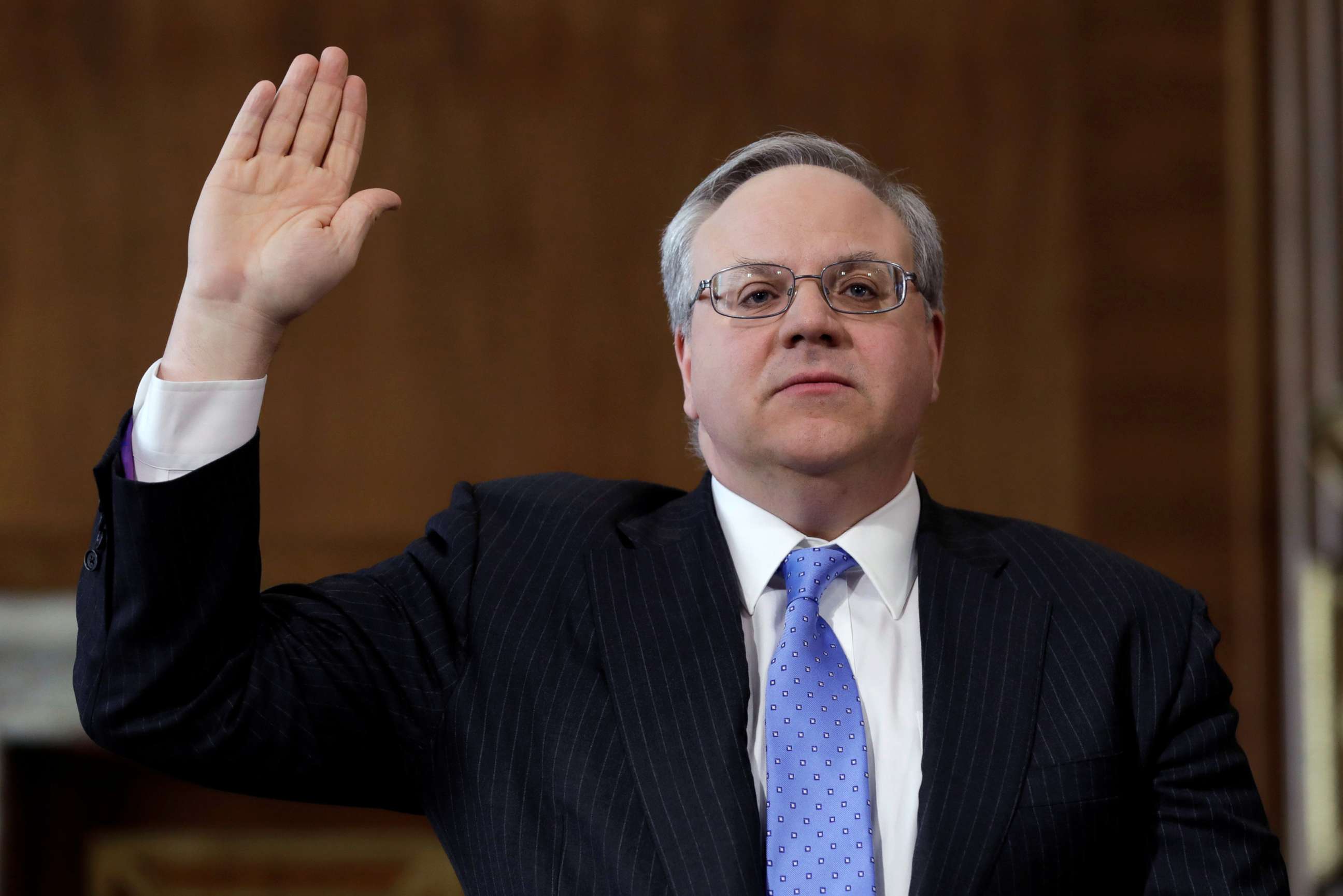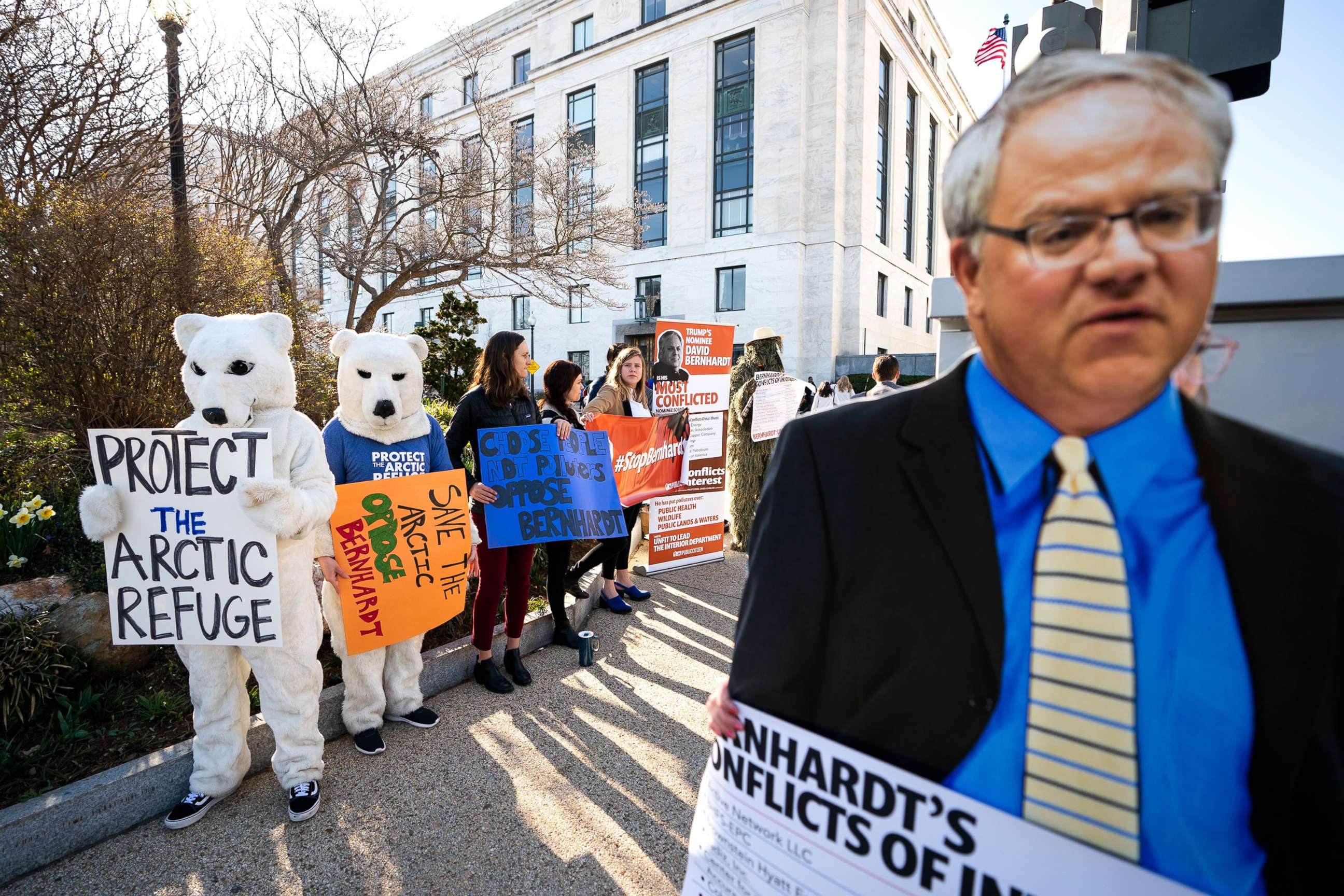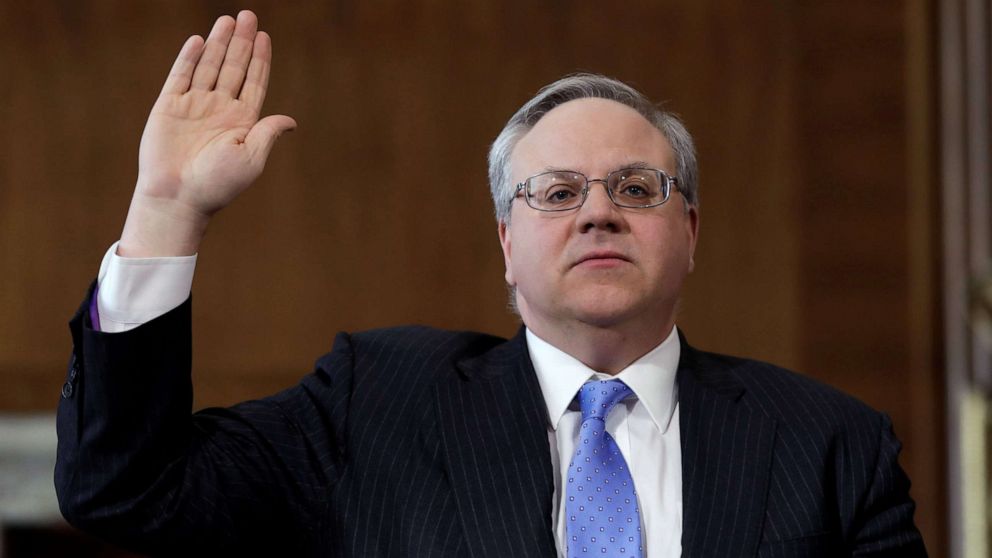Senators clash over criticism of Interior secretary nominee David Bernhardt in confirmation hearing
Republicans and Democrats clashed over criticism of President Donald Trump's nominee to take over the agency that manages the country's public lands in his confirmation hearing on Thursday.
David Bernhardt, acting secretary of the Interior Department and nominee to take over permanently, is expected to be confirmed by the Republican majority in the Senate but has faced scrutiny and investigations from Democrats. Critics say Bernhardt has too many connections to companies and other entities that are regulated by Interior and have called him a "walking conflict of interest" or "swamp creature," a reference to Trump's claims to "drain the swamp."
The former lawyer and lobbyist for energy companies, has been heavily criticized by Democrats and advocacy groups for his ties to private industry and energy companies regulated by the department. His ethics recusal includes 22 entities.
Protesters seized on reporting that he carries a card listing those recusals and several people wearing frog-man masks sat behind him for at least the first hour of the hearing Thursday.

Sen. Ron Wyden, the first Democrat to question Bernhardt asked him about documents released by The New York Times this week, that reported that he intervened to prevent the release of a study that would have raised the alarm on the impact of pesticides on endangered species.
Bernhardt said the "news article you're referring to is not even close to the actual story" and that his decisions were based on legitimate legal concerns.
But the senator from Oregon accused Bernhardt of lying and said the documents released by the newspaper show that he inserted himself in the science.
"I think you are so conflicted that if you get confirmed you're going to have one of two choices," Wyden said. "One, you're going to have to disqualify yourself from so many matters, I don't know how you're going to spend your day. Or two, you're going to be making decisions that either directly or indirectly benefit former clients, regularly violating the ethics pledge."
Ethics officials from the Interior Department said Bernhardt did not violate ethics guidelines in another matter reported by The New York Times, involving California water issues, even though he worked for a client involved in the matter, because the issue as a whole was more broad.
One ethics watchdog group, the Campaign Legal Center, is expected to ask the Interior inspector general to look into that ethics approval, saying that the memo was only completed after the Times story was published and questioned the legal argument used to justify it.
Republicans like Sen. Cory Gardner, who has known Bernhardt for years in their home state of Colorado and introduced him at Thursday's hearing, defended the nominee, saying the criticism is purely partisan and he is one of the most experienced nominees they've ever seen.
"To attack the witnesses, this is why good people don’t want to serve this country,” he said, adding "private and public experience on one side of the aisle seem to be a benefit. Private and public experience on the other, seem to be a detriment."

The Interior Department also faces issues that have been a concern for both sides of the aisle, such as sexual harassment allegations in the National Park Service, billions of dollars of deferred maintenance in national parks and the threats from wildfires on federally managed land in western states.
Sen. Martha McSally, R-Ariz., questioned Bernhardt on what the department is doing to address sexual harassment in the National Park Service, citing her own experience in an "old-boy network" in the military.
"When I see what’s gone on in Grand Canyon National Park over the year it is atrocious, it sounds like a bunch of frat boys that can get away with an environment of toxicity and harassment and bullying," she said. "Unfortunately I know a little bit about going into an old-boy network."
She asked Bernhardt about the first female superintendent at Grand Canyon National Park, who recently resigned from her position despite being cleared of allegations of a hostile work environment.
“I’m really concerned about the message that sends to the harassers and the bulliers, that somehow you can try to derail female progress, you can derail a female leader and maybe get back to business as usual,” McSally said.

Bernhardt has also previously worked at Interior and said that he has deep respect for the career staff and their mission. He was previously confirmed as deputy secretary in 2017 and took over in an acting role when former Secretary Ryan Zinke resigned last year.
"To say it was humbling to meet with the president to discuss the department’s mission, and to then be entrusted with leading it, is a gigantic understatement," he told the Senate Energy and Natural Resources Committee.
"I have an authentic attachment to many of the places managed by the Department of the Interior for the benefit of our own and future generations. I know and love the various bureaus’ rich histories and their varied cultures. I believe that the people who work at Interior choose to do so because they are committed to serving the public first. I am passionate about the work we do, and I try to make our employees’ operating environment better by listening to their suggestions for improvement and acting on those suggestions."

The Interior Department manages thousands of acres of federal land around the country, the National Park Service and thousands of federal law officers. Under the Trump administration, the department has worked to implement the president's agenda, which includes expanding energy production on public lands, pursuing more offshore drilling along the coasts and in the Gulf of Mexico, and shrinking national monuments in Utah.
Many of the decisions have been criticized by conservation groups who allege the department is favoring oil and gas companies and other industries that have connections with political appointees like Bernhardt.




